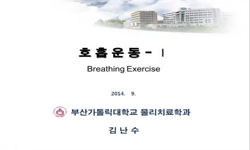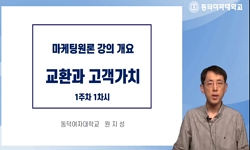청소년들을 대표하는 하위문화로서 힙합문화가 청소년들 사이에서 정착해가면서 힙합패션도 점차 인기를 끌고 있다. 본 연구는 힙합의류를 구매하는 청소년 소비자의 구매행동 특성을 알...
http://chineseinput.net/에서 pinyin(병음)방식으로 중국어를 변환할 수 있습니다.
변환된 중국어를 복사하여 사용하시면 됩니다.
- 中文 을 입력하시려면 zhongwen을 입력하시고 space를누르시면됩니다.
- 北京 을 입력하시려면 beijing을 입력하시고 space를 누르시면 됩니다.
https://www.riss.kr/link?id=T8381732
- 저자
-
발행사항
서울 : 연세대학교 생활환경대학원, 2002
-
학위논문사항
학위논문(석사) -- 연세대학교 생활환경대학원 , 패션산업정보전공 , 2002. 8
-
발행연도
2002
-
작성언어
한국어
-
주제어
청소년 소비자 ; 힙합 의류제품 ; 추구혜택 ; 세분집단 ; 의류속성 ; 상표 유명도 ; 과시성 ; 상표지향 ; 의류관심 ; 동조성 ; 신체만족도 ; benefit sought ; segment ; clothing attribute ; brand reputation ; conspicuousness ; brand loyalty ; clothing interest ; conformity ; body satisfaction
-
KDC
592.4 판사항(4)
-
발행국(도시)
서울
-
형태사항
vi, 53p. : 삽도 ; 26 cm.
-
일반주기명
지도교수: 고애란
- 소장기관
-
0
상세조회 -
0
다운로드
부가정보
국문 초록 (Abstract)
설문조사는 힙합의류 매장을 방문하는 299명의 고객을 대상으로 실시하였으며 SPSS Package Program을 이용하여 빈도분석, 요인분석, 신뢰도분석, 군집분석, t-test, x^(2)- test, 상관관계분석을 실시하였다.
본 연구의 결과는 다음과 같다.
1. 청소년 소비자의 힙합의류 추구혜택은 개성표현, 실용성, 편리성의 세 가지 요인으로 도출되었으며 개성표현 요인이 가장 높은 비중을 보였다. 이 세 개의 요인을 기준으로 소비자를 세분화한 결과 개성표현 추구집단, 편리성 추구집단의 두 집단으로 구분되었다. 세부집단간 인구통계적 특성의 연령차이를 분석한 결과 교육의 차이에서 두 집단 모두 고등학생과 대학생의 분포가 높지만 개성표현 추구집단은 대학생이 더 많이 분포하고, 편리성 추구집단은 고등학생이 높은 분포를 보였다. 거주지역의 차이에서 편리성 추구집단은 다른 지역에 비해 강남지역이 뚜렷이 높게 분포한 반면, 개성표현 추구집단은 강남지역이 가장 많이 분포하기는 하나 강북과 경기지역에도 많이 분포하는 것으로 나타났다.
2. 힙합의류 속성 중요도는 이미지, 관리 편이성, 상표유명도의 세 요인으로 구성되었으며, 개성표현 추구집단은 이미지 요인을 중요하게 인지한 반면 실용성 추구집단은 관리 편이성을 가장 중요요인으로 인지했다. 패션라이프 스타일은 과시성, 상표지향, 의복관심, 동조성의 네 요인으로 구성되었으며 세분 집단 간 차이를 분석한 결과 개성표현 추구집단이 편리성 추구집단에 비해 상표지향과 의복관심이 높은 것으로 나타났다. 정보원 활용은 매체 정보원과 매장 정보원의 두 요인이 도출되었으며 세분집단 간에 정보원 활용은 차이를 나타내지 않았다.
3. 세분집단간 힙합문화 친숙도와 힙합의류 착용현황의 차이를 분석한 결과, 개성표현 추구집단이 힙합문화 친숙도가 높았으며 힙합의류를 자주 입으며 힙합의류 보유율도 높았다.
4. 신체 만족도와 힙합의류 사이즈 만족도에서 키와 팔 길이에 대한 신체만족도는 의류의 상의길이, 팔길이, 바지길이와 유의미한 정적 상관이 있었으나 다리 굵기에 대한 신체 만족도는 바지통에 대한 사이즈 만족도와 상관을 나타내지 않았으며, 체중도 의류의 둘레항목과 유의미한 상관관계를 나타내지 않았다.
청소년들을 대표하는 하위문화로서 힙합문화가 청소년들 사이에서 정착해가면서 힙합패션도 점차 인기를 끌고 있다. 본 연구는 힙합의류를 구매하는 청소년 소비자의 구매행동 특성을 알아보기 위한 것으로 구체적인 연구목적은 첫째, 힙합의류 추구혜택을 기준으로 소비자집단을 세분화하여 세분집단의 인구통계적 특성을 밝히고 둘째, 세분집단의 구매 관련 행동특성의 차이를 의류속성 중요도, 정보원 활용, 패션 라이프스타일을 중심으로 파악하며 셋째, 힙합의류 추구혜택에 의한 세분집단의 힙합문화에 대한 친숙도와 힙합의류 착용 현황의 차이를 밝히는 것이다. 또한, 부가적 관심으로서 신체 만족도와 힙합의류 사이즈 만족도 간의 관계를 분석하였다.
설문조사는 힙합의류 매장을 방문하는 299명의 고객을 대상으로 실시하였으며 SPSS Package Program을 이용하여 빈도분석, 요인분석, 신뢰도분석, 군집분석, t-test, x^(2)- test, 상관관계분석을 실시하였다.
본 연구의 결과는 다음과 같다.
1. 청소년 소비자의 힙합의류 추구혜택은 개성표현, 실용성, 편리성의 세 가지 요인으로 도출되었으며 개성표현 요인이 가장 높은 비중을 보였다. 이 세 개의 요인을 기준으로 소비자를 세분화한 결과 개성표현 추구집단, 편리성 추구집단의 두 집단으로 구분되었다. 세부집단간 인구통계적 특성의 연령차이를 분석한 결과 교육의 차이에서 두 집단 모두 고등학생과 대학생의 분포가 높지만 개성표현 추구집단은 대학생이 더 많이 분포하고, 편리성 추구집단은 고등학생이 높은 분포를 보였다. 거주지역의 차이에서 편리성 추구집단은 다른 지역에 비해 강남지역이 뚜렷이 높게 분포한 반면, 개성표현 추구집단은 강남지역이 가장 많이 분포하기는 하나 강북과 경기지역에도 많이 분포하는 것으로 나타났다.
2. 힙합의류 속성 중요도는 이미지, 관리 편이성, 상표유명도의 세 요인으로 구성되었으며, 개성표현 추구집단은 이미지 요인을 중요하게 인지한 반면 실용성 추구집단은 관리 편이성을 가장 중요요인으로 인지했다. 패션라이프 스타일은 과시성, 상표지향, 의복관심, 동조성의 네 요인으로 구성되었으며 세분 집단 간 차이를 분석한 결과 개성표현 추구집단이 편리성 추구집단에 비해 상표지향과 의복관심이 높은 것으로 나타났다. 정보원 활용은 매체 정보원과 매장 정보원의 두 요인이 도출되었으며 세분집단 간에 정보원 활용은 차이를 나타내지 않았다.
3. 세분집단간 힙합문화 친숙도와 힙합의류 착용현황의 차이를 분석한 결과, 개성표현 추구집단이 힙합문화 친숙도가 높았으며 힙합의류를 자주 입으며 힙합의류 보유율도 높았다.
4. 신체 만족도와 힙합의류 사이즈 만족도에서 키와 팔 길이에 대한 신체만족도는 의류의 상의길이, 팔길이, 바지길이와 유의미한 정적 상관이 있었으나 다리 굵기에 대한 신체 만족도는 바지통에 대한 사이즈 만족도와 상관을 나타내지 않았으며, 체중도 의류의 둘레항목과 유의미한 상관관계를 나타내지 않았다.
다국어 초록 (Multilingual Abstract)
The data of 299 respondents were collected from hip hop fashion stores in department stores in Seoul and analysed by frequency, factor analysis, reliability analysis, cluster analysis, t-test, x^(2)-test, and Pearson's correlation analysis by SPSS Package Program.
The results of the research were as follows:
1) Benefit sought for hip hop clothes was found to included three factors: individual expression, practicality, and convenience. As a result of subdividing the consumers, two distinctive groups were formed on the basis of benefit factors: individuality oriented group and convenience oriented group. The two groups mostly consisted of high school and college students. But individuality oriented group consisted of more college students and convenience group consisted of more high school students. There was a difference in living place which convenience oriented group lived in Kang-Nam with distinctively high rate, but individuality oriented group lived in Kang-Buk and Kyunggi area, as well as in Kang-Nam area.
2) The importance of clothing attributes for hip hop clothes was classified to three factors: image, easy care and brand reputation. Individuality oriented group recognized image as the most important attribute while convenience oriented group recognized easy care most. The four factors of fashion lifestyle were conspicuousness, brand loyalty, clothing interest and conformity. Individuality oriented group showed higher scores on brand loyalty and clothing interest. Information sources was classified to two factors, media sources and store source, and there were no differences between the two groups in information sources.
3) The difference of familarity on hip hop culture and practice of hip hop clothes were founded that individuality oriented group showed higher familarity on hip hop culture than convenience oriented group. This group also wore and owned more hip hop clothes.
As Hip Hop culture, a subculture representing adolescents, is becoming more popular among adolescents, so is hip hop fashion. As a study of identifying adolescent consumers' purchasing behavior for hip hop clothes, the purpose of this research was 1) ...
As Hip Hop culture, a subculture representing adolescents, is becoming more popular among adolescents, so is hip hop fashion. As a study of identifying adolescent consumers' purchasing behavior for hip hop clothes, the purpose of this research was 1) to segment consumer groups based on benefit dimension of hip hop clothes and to analyze demographics of each segment, 2) to identify purchasing behavior of each segment in terms of importance of clothing attributes, information sources, and fashion lifestyle, 3) to find the difference of familarity of hip hop culture and practice of hip hop clothes between the two segments, and 4) to analyze correlation between body satisfaction and size satisfaction of hip hop clothes.
The data of 299 respondents were collected from hip hop fashion stores in department stores in Seoul and analysed by frequency, factor analysis, reliability analysis, cluster analysis, t-test, x^(2)-test, and Pearson's correlation analysis by SPSS Package Program.
The results of the research were as follows:
1) Benefit sought for hip hop clothes was found to included three factors: individual expression, practicality, and convenience. As a result of subdividing the consumers, two distinctive groups were formed on the basis of benefit factors: individuality oriented group and convenience oriented group. The two groups mostly consisted of high school and college students. But individuality oriented group consisted of more college students and convenience group consisted of more high school students. There was a difference in living place which convenience oriented group lived in Kang-Nam with distinctively high rate, but individuality oriented group lived in Kang-Buk and Kyunggi area, as well as in Kang-Nam area.
2) The importance of clothing attributes for hip hop clothes was classified to three factors: image, easy care and brand reputation. Individuality oriented group recognized image as the most important attribute while convenience oriented group recognized easy care most. The four factors of fashion lifestyle were conspicuousness, brand loyalty, clothing interest and conformity. Individuality oriented group showed higher scores on brand loyalty and clothing interest. Information sources was classified to two factors, media sources and store source, and there were no differences between the two groups in information sources.
3) The difference of familarity on hip hop culture and practice of hip hop clothes were founded that individuality oriented group showed higher familarity on hip hop culture than convenience oriented group. This group also wore and owned more hip hop clothes.
목차 (Table of Contents)
- 목차 = i
- 표차례
- 국문요약
- 제1장 서론 = 1
- 1.1 연구의 필요성 = 1
- 목차 = i
- 표차례
- 국문요약
- 제1장 서론 = 1
- 1.1 연구의 필요성 = 1
- 1.2 연구의 목적 = 3
- 제2장 문헌 고찰 = 4
- 2.1 힙합문화 특성과 힙합패션 = 4
- 2.1.1 힙합문화의 특성 = 4
- 2.1.2 힙합 패션 = 6
- 2.1.2 힙합 패션 시장현황 = 8
- 2.2 청소년기 의복행동 특성 = 10
- 2.2.1 청소년기의 특징과 의복 = 10
- 2.2.2 청소년 소비행동의 특성 = 11
- 제3장 연구방법 및 절차 = 14
- 3.1 연구문제 = 14
- 3.2 측정도구 = 15
- 3.3 연구대상 및 자료수집 = 17
- 3.4 자료 분석 = 19
- 제4장 결과 및 논의 = 20
- 4.1 힙합의류 추구혜택에 따른 소비자 세분화 = 20
- 4.1.1 힙합의류 추구혜택의 요인구조 = 20
- 4.1.2 추구혜택 요인을 기준으로 한 소비자 세분화 = 22
- 4.1.3 세분집단의 인구통계학적 특성 비교 = 23
- 4.2 세분집단간 구매관련 행동 차이 = 25
- 4.2.1 세분집단간 의류속성 중요도의 차이 = 25
- 4.2.2 세분집단간 정보원 활용의 차이 = 27
- 4.2.3 세분집단간 패션 라이프스타일의 차이 = 29
- 4.3 세분집단간 힙합문화 친숙도 및 힙합의류 착용현황차이 = 31
- 4.4 힙합의류 사이즈 = 33
- 제5장 결론 및 제언 = 35
- 5.1 결론 = 35
- 5.2 마케팅 적용 = 36
- 5.3 연구의 제한점 및 후속 연구를 위한 제언 = 38
- 참고문헌 = 39
- ABSTRACT = 51












